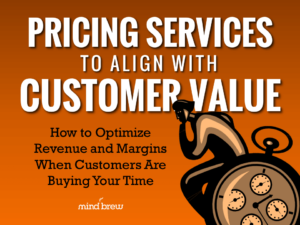What would happen if you got rid of every part of your B2B marketing program except the calls to action?
Instead of thoughtful advertising, insightful collateral, an informative website and highly tailored lead generation programs, you would send customers just one message: Buy Our Widgets. You wouldn’t research your target market or offer current customers new products that meet their needs. You wouldn’t tell prospects what widgets are or why they need them. And your home page? Nothing but a big “Buy Now” button.
Ridiculous, right?
Then why do so many of us take exactly that approach when it comes to dealing with other internal departments?
In order to be successful, marketing professionals have to work closely with many other groups—sales, product management, IT, operations and even finance. That means we frequently need to get other people in the company to support (or at least buy off on) our ideas.
All too often, we simply tell the people in these departments what we need them to do and expect them to do it. We don’t take the time to help them understand why it might be important and how it might help them. And then we’re surprised when people resist our ideas or fail to approve our plans.
But what if you approached internal collaboration as a marketing challenge?
In “How to Deal with Other Internal Departments,” we delve into internal marketing—what it is, why it’s important and how to do it right. If you’ve ever struggled to get approval for your budget and ideas, this guide can help you refine your strategy and tactics when approaching other people in your company.
As a successful marketer, you already have the skills you need to influence the other departments in your organization. You just need to apply those skills in a new way. Our internal marketing guide can show you how.
Just like external marketing, internal marketing takes time, focus and a commitment. However, the potential payoff is enormous. You’ll be more likely to get along with people in other departments, and your collaboration efforts will be more successful. You’ll be more likely to get your budgets approved, and when it doesn’t happen, you’ll be more likely to understand why. You may even find that people in other parts of the company have valuable ideas that could benefit your marketing efforts.
In short, good internal marketing helps support good external marketing.







